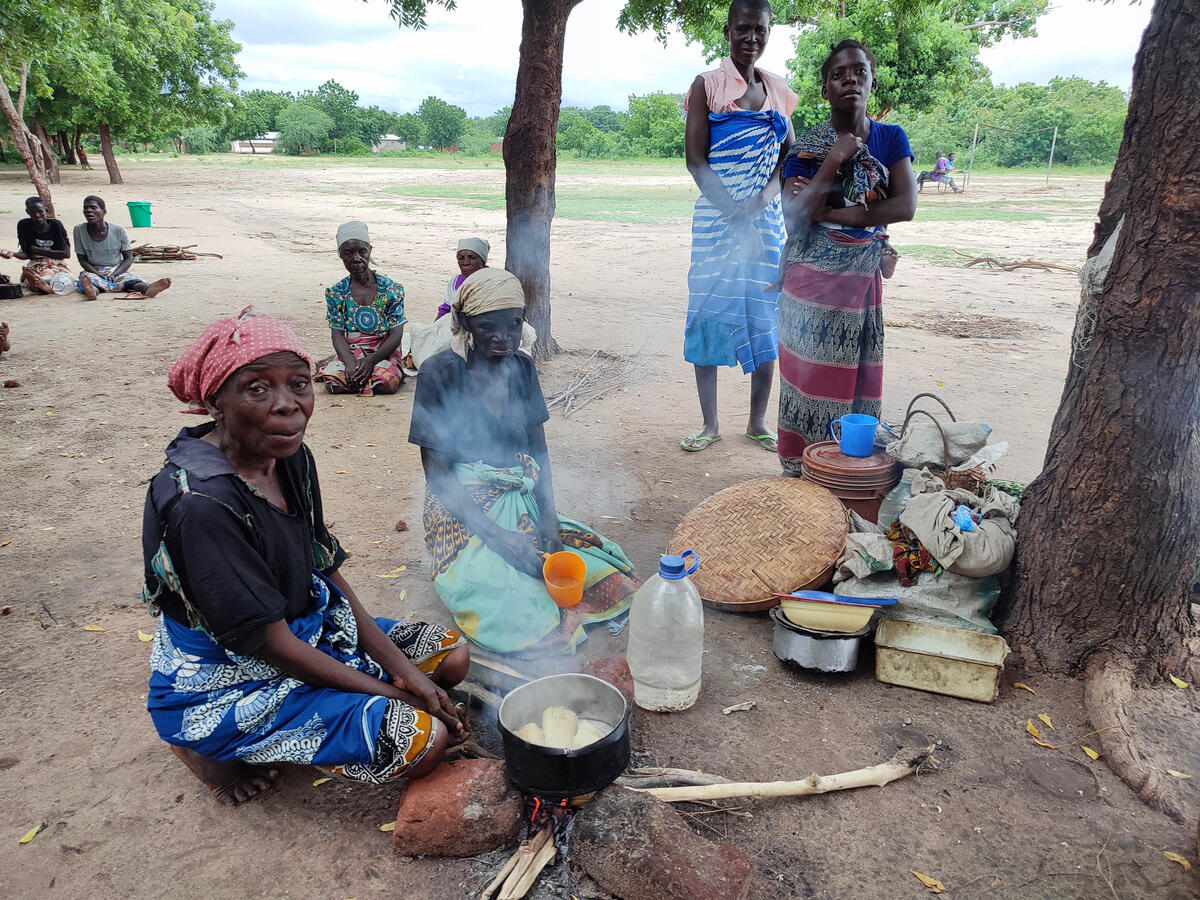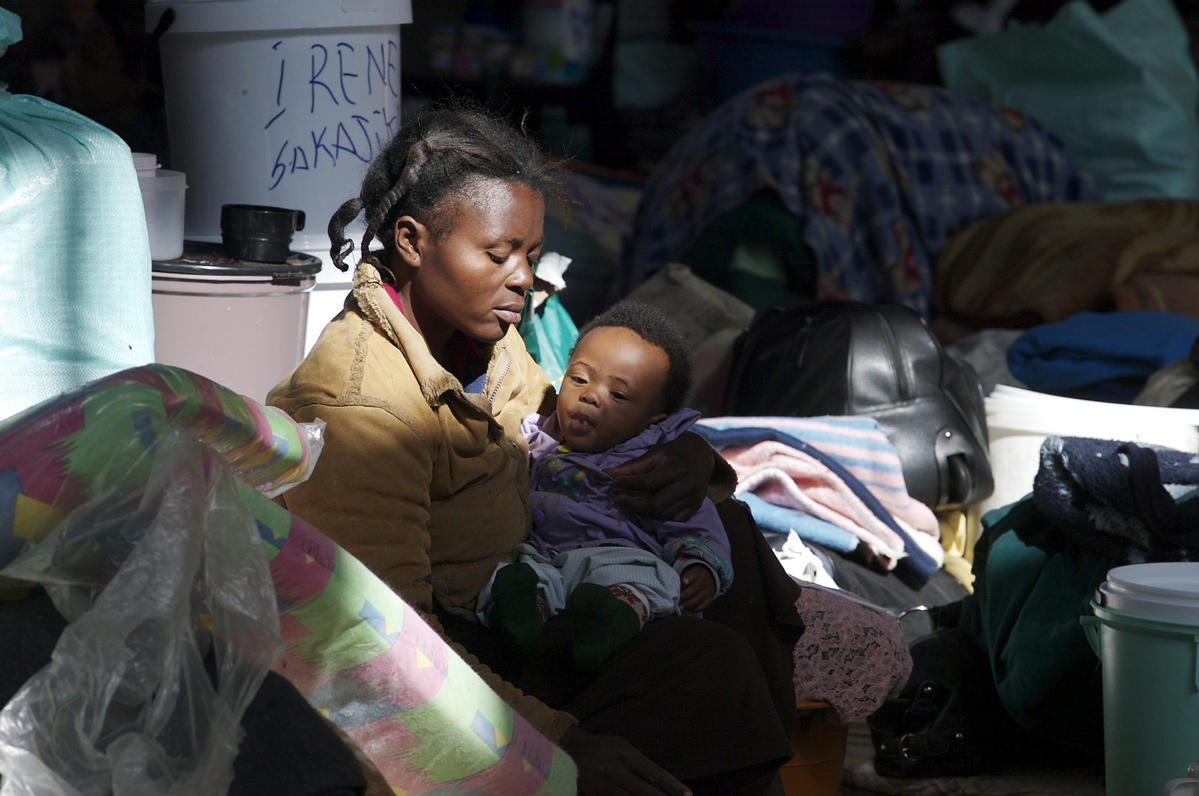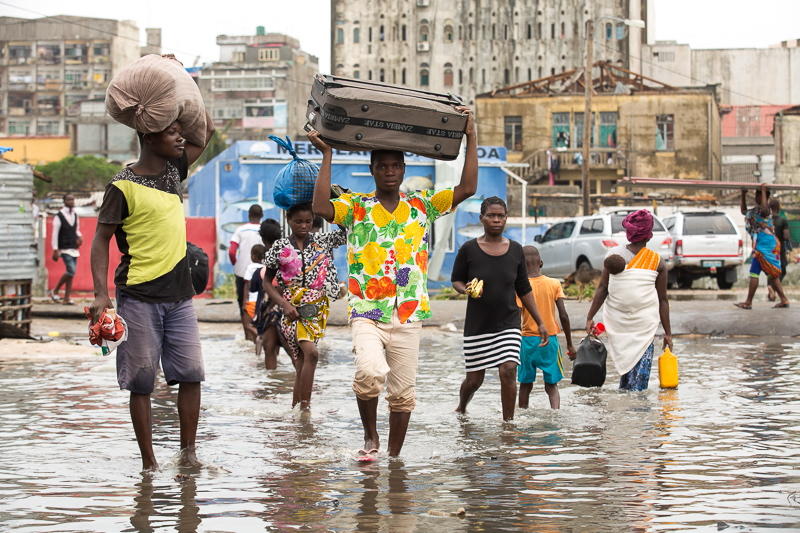Malawi: Luwani refugees to be moved following government order
Malawi: Luwani refugees to be moved following government order
In Malawi, our staff are rushing to install additional facilities for 3,000 refugees at Dzaleka refugee camp following a government order to close the only other refugee camp in the country. Although UNHCR will take until July to move all the refugees and asylum seekers from Luwani camp, it will have some of the necessary facilities in place in Dzaleka by the government's deadline of May 31.
The government said its decision at the end of last month to close Luwani was prompted by increasing concern at the number of asylum seekers who arrive from Ethiopia and Somalia, claim asylum, stay a few days at Luwani and then disappear over the border into Mozambique en route to South Africa. It termed these arrivals - from what it sees as the unstable Horn of Africa - a threat to its own security. Luwani is located near the southern border with Mozambique, while Dzaleka is near the capital, Lilongwe, in the centre of the country. The government believes placing all asylum seekers in Dzaleka, further from the border, will reduce the number using Malawi purely as a transit route for heading toward South Africa.
The government also announced the deployment of soldiers to reinforce police along Malawi's northern border with Tanzania in order to tighten control on undocumented crossings. UNHCR has welcomed the government's assurance that these changes in policy, which are its right, do not mean any reduction in the government's international commitment to continue providing asylum to refugees. It is imperative that legitimate asylum seekers still have access to protection.
With the decision to close Luwani, the government also stopped moving newly arrived asylum seekers from the transit station it operated with UNHCR near the border with Tanzania. That has resulted in a build-up of asylum seekers at the transit station, which has a normal capacity of about 100 people but now holds more than 350. The government wants new asylum seekers moved to Dzaleka, which had previously been considered full with its current 5,000 residents. UNHCR is working to ensure a makeshift reception centre for new arrivals is available at Dzaleka by the end of the month.
The transfer of the 3,000 refugees from Luwani - likely to begin in the second half of June and take up to a month to complete - will require additional school and medical facilities at Dzaleka. Initially refugees will be housed in temporary structures and tents before they erect homes. Building materials for traditional houses - wooden poles and grass - is already being stockpiled. To ensure the disruption to education is minimized, students at first may have to study in makeshift structures. Unlike those asylum seekers who quickly transit through Malawi with the apparent services of traffickers - the group who triggered the government's closure of Luwani - most of the refugees to be relocated have been long-term residents of the camp. Some had hoped to become self-sufficient through farming at Luwani but there is little land available at Dzaleka so they will remain dependent on aid.









